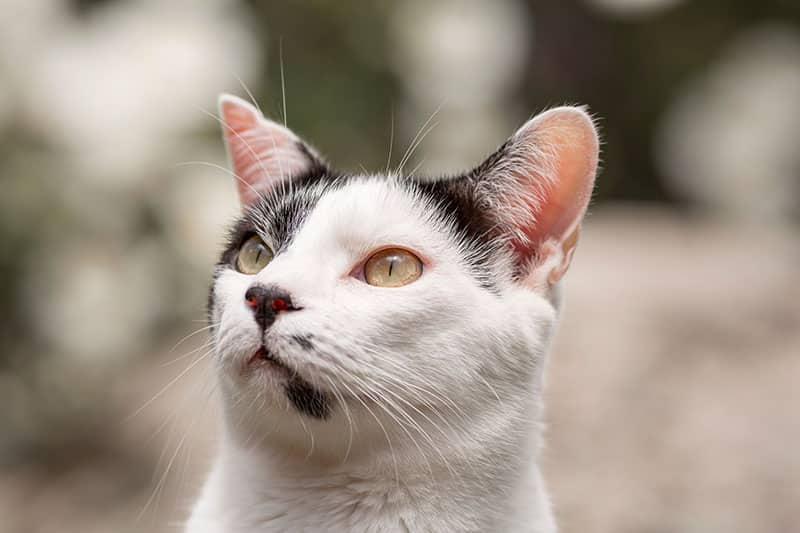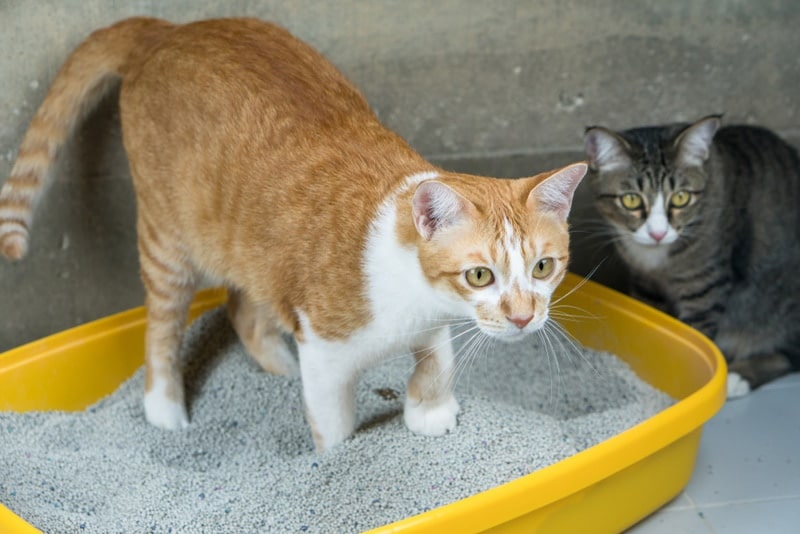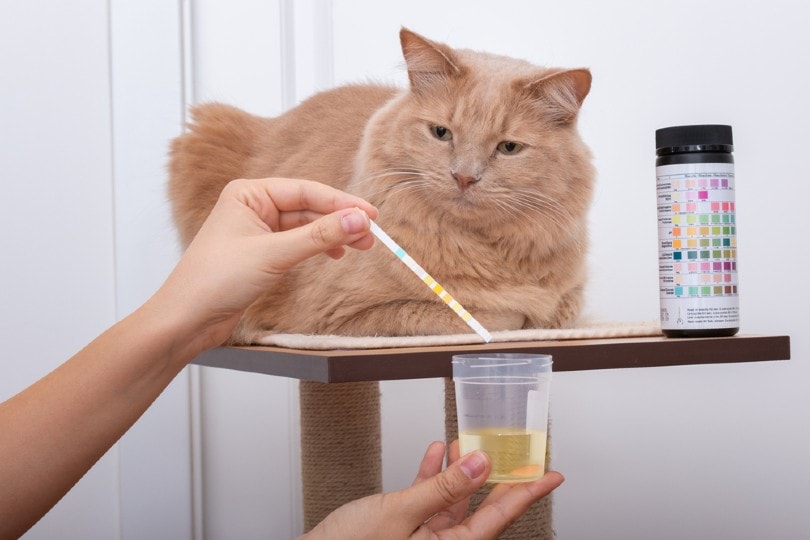The post Why Is My Cat Bleeding? A Full-Body Overview (Vet Answer) by Dr. Marti Dudley, DVM (Vet) appeared first on . Copying over entire articles infringes on copyright laws. You may not be aware of it, but all of these articles were assigned, contracted and paid for, so they aren't considered public domain. However, we appreciate that you like the article and would love it if you continued sharing just the first paragraph of an article, then linking out to the rest of the piece on Catster.com.
Noticing bleeding from your cat is alarming, especially when you don’t know what’s causing it. As imagined, bleeding can occur for several different reasons, ranging from trauma to immune disorders to infectious diseases. Bleeding is not an illness but more of a sign of something else. If your cat is bleeding it is strongly recommended that you contact your veterinarian for advice. Continue reading to learn more about common causes of bleeding based on body location.

Body Location
Bleeding From the Eyes
If you notice blood from the eyes, there is a good chance trauma has occurred. Trauma could include scratching around the eye leading to skin irritation, or a more serious injury like trauma to the eyeball. Blood can sometimes be seen within the eye itself with certain types of injury or infections.

Bleeding From the Ears
Ear infections can lead to trauma from excessive scratching. Additionally, cats can develop polyps within the ear that can cause irritation and inflammation leading to bleeding. Significant trauma to the head can also cause bleeding to be seen from the ears.
Bleeding From the Nose
Bleeding from the nose can be alarming, especially as it can sometimes lead to blood splatter. This can occur from a series of things, including nasal passage irritation due to an ongoing upper respiratory infection, cancer, and possibly trauma including foreign bodies. Diagnosing the cause of bleeding from the nose may be made based on history, or it may require a more in-depth investigation, including rhinoscopy, or a placement of a camera into the nasal passages.
Bleeding From the Mouth
If blood is noted in your cat’s mouth, it is often the result of gingivitis. Bleeding can also be noted when teeth are fractured or pulled out, both of which are painful. If trauma occurs to the mouth through fighting or a foreign body, blood may also be noted. Injury to the tongue or mouth tissues or even oral masses can also result in bleeding within the oral cavity. Significant trauma to the body resulting in severe bleeding in the chest can cause blood to be seen in the nose and mouth. Sedation may be necessary to thoroughly evaluate your pet’s oral cavity.
Bleeding From Skin
Bleeding from the skin is often from trauma and is easy to recognize. It is important to note that bleeding can occur with superficial injury to the skin and more significant deeper tissue trauma. Bleeding can be severe in some cases.
Blood in Urine
An unfortunately common concern some cat owners have is noticing blood in their cat’s urine. Cats are unique creatures who can be easily stressed and develop cystitis, or inflammation of the bladder. When this occurs, blood is often noted in the urine. Infection, bladder stones, and cancer are three other common causes of blood in the urine.

Bleeding From Rectum
Bleeding can occur from problems higher up in the gastrointestinal tract, like ulcerations, or from the rectum itself. Cats with diarrhea secondary to infection or constipation may experience bleeding from their rectum due to irritation and straining. Polyps, growths, and foreign bodies are other possible causes.
Internal Bleeding
Patients can also bleed internally, which can be harder to recognize. Signs will be dependent on where in the body the blood is being lost. Some patients suffering from tumors impacting their liver or spleen may experience hemorrhage in their abdomen. When this occurs, abdominal distension may be noted. Alternatively, if bleeding occurs within the chest, labored breathing may be seen. If large amounts of blood are being lost, your cat may experience pale gums, lethargy and weakness.

Clotting Problems
Unfortunately, clotting problems in cats can lead to bleeding that can be severe, and bleeding may be noted from different orifices. When this occurs, immediate intervention is necessary. Some animals may develop immune-mediated disorders that impact platelets or they may have been born with abnormal clotting factors. Alternatively, some patients may have ingested a poison or toxin that causes problems with clotting. An example of a poison would be anticoagulant rat bait. In patients suffering from clotting disorders, bleeding may be noted from different locations.
Treating Bleeding in Cats
As the possible causes of bleeding are vast, treatment varies greatly. The first thing that needs to be done is to determine the underlying cause of the blood loss. Often this can be done by listening to the patient’s history and performing a thorough physical examination.
Bloodwork may be recommended to check for other underlying problems and to check red blood cell levels. When anemia occurs, treatment may be needed to quickly increase the level of red blood cells through a blood transfusion. If anemia is noted in your pet, frequent blood checks will be done to see how the red blood cell levels are changing over time.
Depending on where the bleeding is occurring, additional diagnostics may include endoscopy, ultrasound, and radiographs.
Surgery may be necessary to repair wounds and stop bleeding. In other cases, supportive care through fluid therapy may be all that is required.


In Summary
You may notice blood on your cat and not be able to immediately pinpoint the origin. In any case, having your pet evaluated by your veterinarian is strongly recommended. Depending on the findings, your veterinarian will offer treatment recommendations and interventions. If bleeding is severe leading to anemia, ongoing monitoring of red blood cell levels will be needed.
Featured Image Credit: Kamil Zajaczkowski, Shutterstock
The post Why Is My Cat Bleeding? A Full-Body Overview (Vet Answer) by Dr. Marti Dudley, DVM (Vet) appeared first on . Copying over entire articles infringes on copyright laws. You may not be aware of it, but all of these articles were assigned, contracted and paid for, so they aren't considered public domain. However, we appreciate that you like the article and would love it if you continued sharing just the first paragraph of an article, then linking out to the rest of the piece on Catster.com.